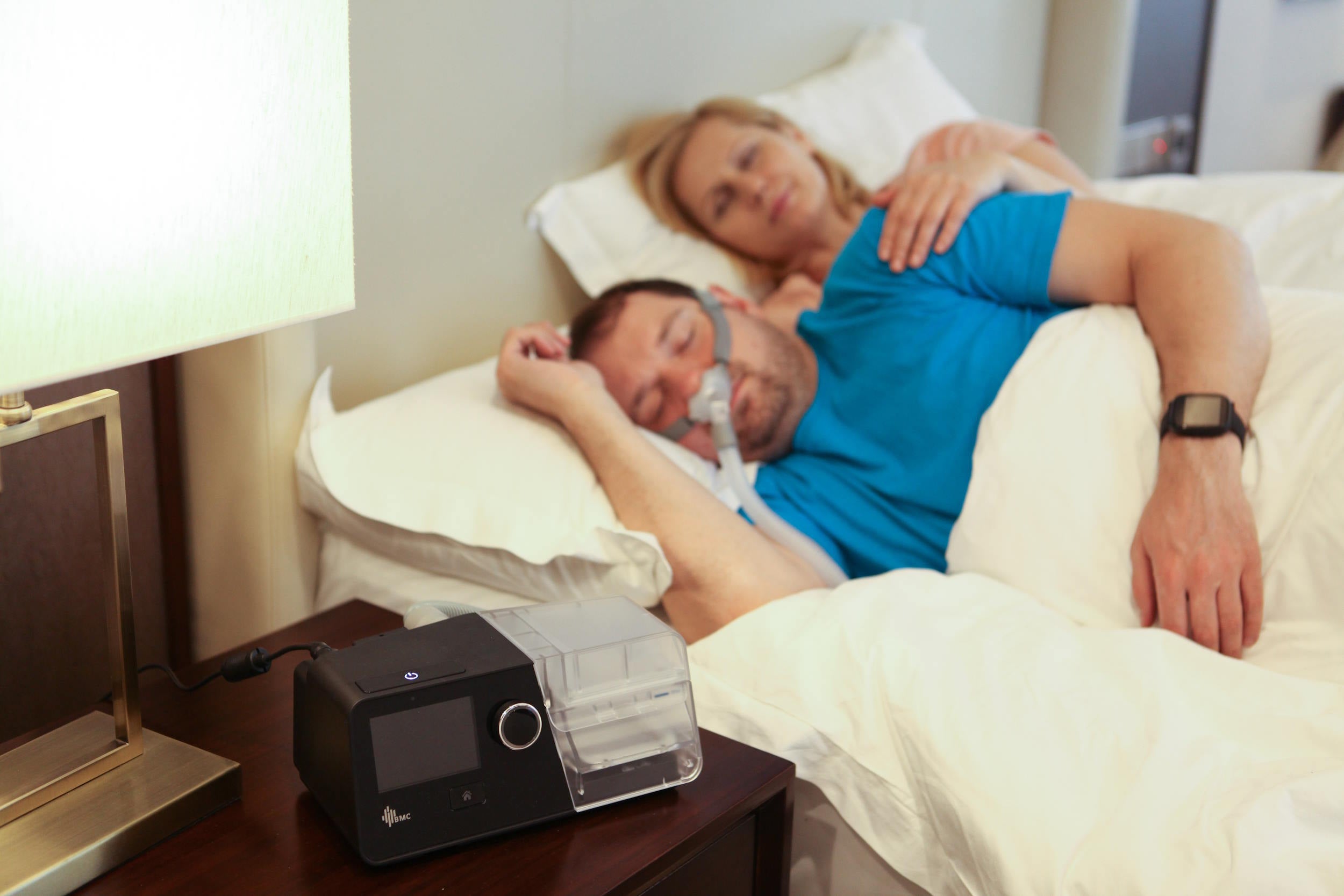
FAQs
SLEEP AND CPAP EDUCATION
Questions & Answers
Sleep apnoea is a condition in which breathing during rest is disordered and results in pauses in respiration. This condition is characterised by symptoms such as:
- Snoring
- Excessive daytime sleepiness
- Gasping during sleep
- Poor concentration
- Depression
- Morning headaches
- Dry mouth
- Nocturia
A CPAP, or continuous positive airway pressure, is a machine used with patients who suffer from sleep apnoea. Sleep apnoea is a condition in which breathing during rest is disordered and results in pauses in respiration. This can be an especially dangerous condition without treatment, and is associated with numerous comorbidities. A CPAP machine prevents the airway collapse associated with sleep apnoea by gently delivering filtered and pressurised air via a face mask. This pressure will aid in keeping the airways open during sleep.
An APAP (Automatic Positive Airway Pressure)
is a similar device to CPAP in that it is delivering positive airway pressure
through the night, but differs in the pressure it delivers. An APAP will
automatically adjust its pressure settings through the night which can be a
more comfortable option available for some patients.
For patients who suffer from issues with both
inspiration and expiration during sleep, a BiPAP (or Bi-Level) is an excellent
solution. An example for when this product could be used is when a patient is suffering
from a lung condition such as emphysema.
If you think that you may suffer from sleep apnoea, please speak to your general practitioner. They may refer you to have an in-lab or at-home sleep study, and if they deem it necessary, refer you to a sleep physician. From here, you can be referred an APAP machine to use, or be referred to perform a secondary in-lab CPAP specific sleep study. The therapy required will depend on your inital sleep results.
Visit our shop here
